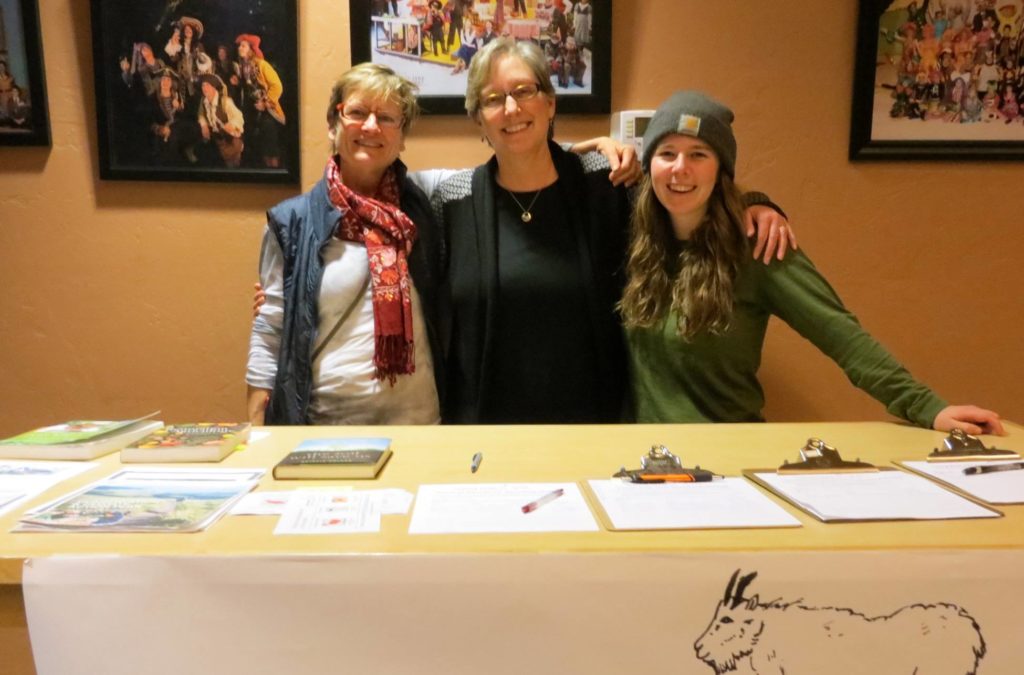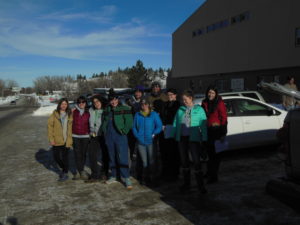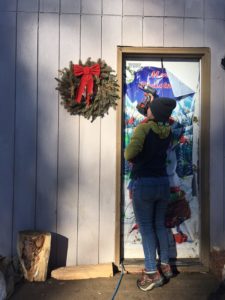By Rachel Sussman:
Maslow’s hierarchy of needs depicts the levels of motivation for humans, starting with basic needs- physiological and safety- and moving up to those less essential for survival and more essential for having a meaningful existence. The immediacy of those basic needs does not mitigate the importance of the upper levels; however, it does prioritize what needs to be addressed. It is difficult or pointless to stress the importance of realizing one’s professional aspirations when that same individual does not have sufficient food or shelter.
This model is at the heart of why climate change is often so difficult to address. It is abstract, widespread, manifests in many ways, and often seems non-immediate. Although it is the driver behind many more pressing social issues, it is often pushed aside to address these issues. When civil war rages in Syria and people are being murdered by the hundreds of thousands with many more stranded without home or livelihood, how can we talk about carbon emissions? When billions of people are at risk of malaria and dengue, how can we insist that they care about clean energy? When these base, bottom-tier needs have not been addressed, the seemingly far-off issue of climate change is inevitably postponed.
This was never more apparent than when we went to perform light weatherization in Lame Deer, MT. Lame Deer is the tribal headquarters of the Northern Cheyenne Indian Reservation. I have been through reservations before and knew in a general way about the historical (and present-day) challenges that tribes have faced, but I was not prepared for the standard of living we encountered. We were putting plastic on windows next to gaping holes in the walls- walls that lacked any insulation. We put new aerators on faucets that choked out brown, silty, non-potable water.
It was honestly shameful. I dreaded Lame Deer residents asking about my life, to which I would have to confess that I live in Whitefish, an affluent ski town that was worlds apart from Lame Deer. I would have to tell them that I do energy efficiency work for a community that- if they chose- could easily afford to transition to entirely renewable energy and still have money left over to give many people in Lame Deer homes with insulation sufficient for winter in southeastern Montana. Telling people that I work on the issue of climate change is usually a point of pride, but when I was confronted with the immediate needs of the individuals before me it seemed selfish and lofty.
This is the problem. Immediate social issues will always be a priority over the long-term, pervasive, hard-to-trace issue of which they are often symptomatic. The conflict in Syria has been linked to drought and food scarcity caused by climate change. The spread of vector-borne diseases such as malaria and dengue is expected to increase exponentially with rising temperatures and changes in precipitation. The most pressing social issues of our time are the heads of the hydra that is climate change. To address these issues, we need to tackle the body of the beast.
I am not sure how to keep that perspective, and I am not sure that it is the most humane viewpoint to carry. There is a callousness in ignoring immediate suffering to prevent future suffering, but if we had done so fifty years ago, we would live in a different world today. So, I will continue working on climate change today in the hopes of a better tomorrow, even if it feels like I am disregarding the bottom, most fundamental tiers of the hierarchy of needs.
 Rachel Sussman has a Bachelor’s from Colorado College. She has had several research jobs and internships, including one at Colorado State University looking at atmospheric pollution in Rocky Mountain National Park and another investigating marine larval transportation in relation to fishery populations at the UC Davis Bodega Marine Lab. She also worked as a door canvasser for Environment California, raising funds and awareness for local environmental issues. As the sustainability educator for Whitefish, Montana, she will be helping to draft an energy conservation and climate action plan and conduct an energy audit and greenhouse gas inventory on city operations.
Rachel Sussman has a Bachelor’s from Colorado College. She has had several research jobs and internships, including one at Colorado State University looking at atmospheric pollution in Rocky Mountain National Park and another investigating marine larval transportation in relation to fishery populations at the UC Davis Bodega Marine Lab. She also worked as a door canvasser for Environment California, raising funds and awareness for local environmental issues. As the sustainability educator for Whitefish, Montana, she will be helping to draft an energy conservation and climate action plan and conduct an energy audit and greenhouse gas inventory on city operations.








